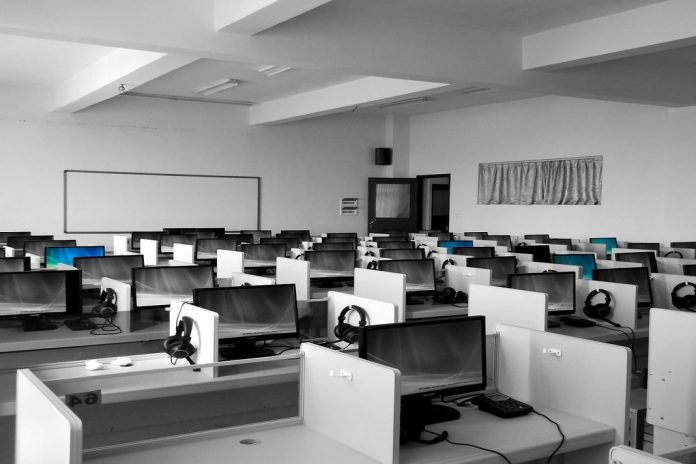by Fotini Mastroianni
In the beginning, the reasons for the creation of these open spaces were the rise in productivity, the creation of a collaborative working environment and creativity. In reality, however, the reason was different and the real reason was only the close monitoring of employees and the complete abolition of their privacy.
It is no coincidence, in support of the above, that in many of these open spaces, the supervisor is, usually found in a glazed cabin in which s/he retains some privacy in relation to ordinary employees, and can at the same time oversee others with his/her distinct role of power. This is about creating a modern production plant that has been transferred to the service sector. These spaces, however, create problems.
Especially for high-performance employees who need quietness to concentrate on their work, open spaces with the bustle created by other employees are an inappropriate environment for them. Things are even worse for introverts (50.7% of the population) who need their own space, the continued presence of others “above their heads” may be a martyrdom. If a colleague likes listening to music, then martyrdom may be worse.
But besides sonic pollution there is also visual contamination, that is, the continuous movements of others distract attention, productivity vanishes. People do not want to be in constant and close contact with others at the workplace and it has been noticed that good employee absenteeism increases.
Alternatively, office spaces with glass partitions can be created in the case where it is not possible to have separate offices. It is also possible for the employee to work from home and one day a week to be in the company’s offices so that he is not isolated from his colleagues. All of these are different proposals that are discussed at times and some businesses have done them, especially homework.ses and productivity is further reduced.
These data have been confirmed by a lot of research. More specifically, everyday 86′ work is lost due to the various inconveniences that occur in open space workplaces and 23′ per employee are needed to recover from these inconveniences. Productivity decreases by 15% and employee welfare is reduced by 32%. Let us not, of course, discuss the easy contamination of illnesses among employees. According to a 2011 research in Denmark, the likelihood of an employee getting ill in these places increases by 62%.
Open space offices may be appropriate for sales departments but not for other types of jobs. The solution proposed internationally is working from home, something that with the current technological advancement is absolutely feasible.
This way, the company saves money from renting premises and employees become more productive. Alternatively, office spaces with glass partitions can be created in case where it is not possible to have separate offices. Employees may also work from home and one day a week to be in the company’s premises so that not become alienated from his colleagues. All these are different proposals that are discussed at times and some enterprises have implemented them, especially working from home.
However, in this case, the balance between personal and professional life needs to be reconsidered because it has been noticed that home turns into an office with all the negative effects it can have on the employee’s family life.









































